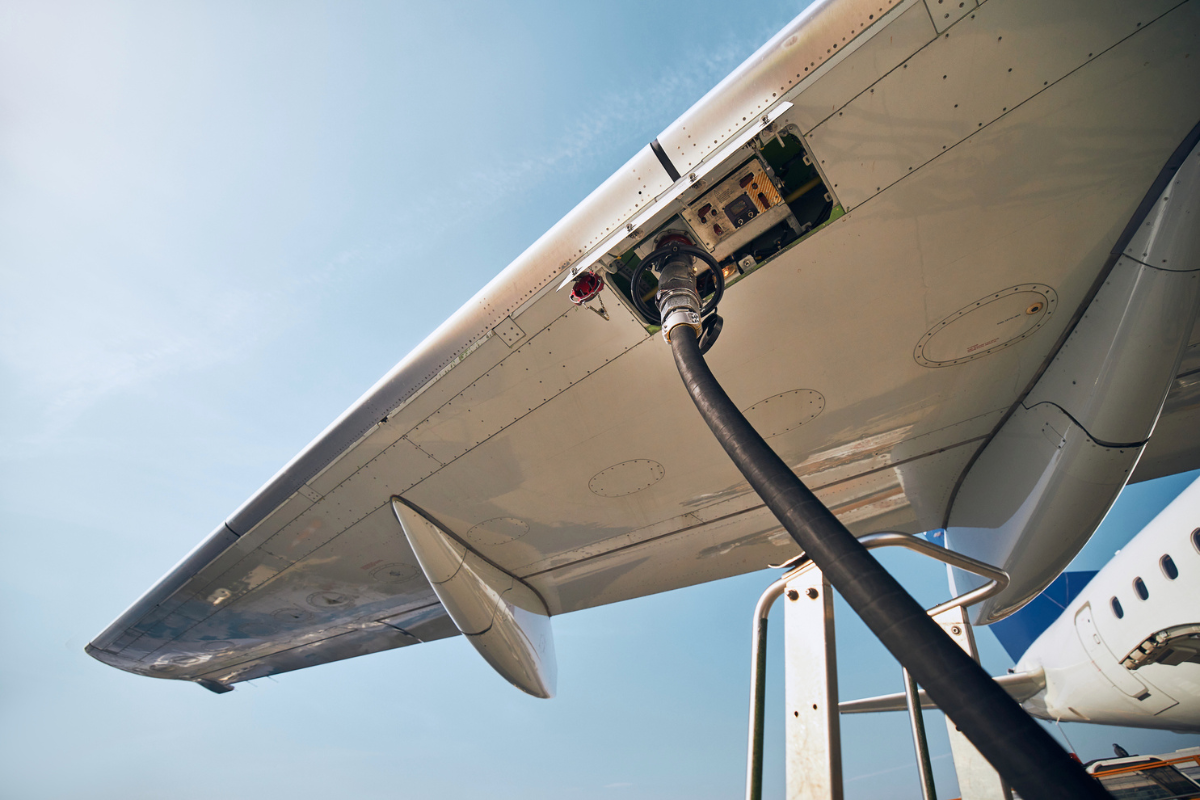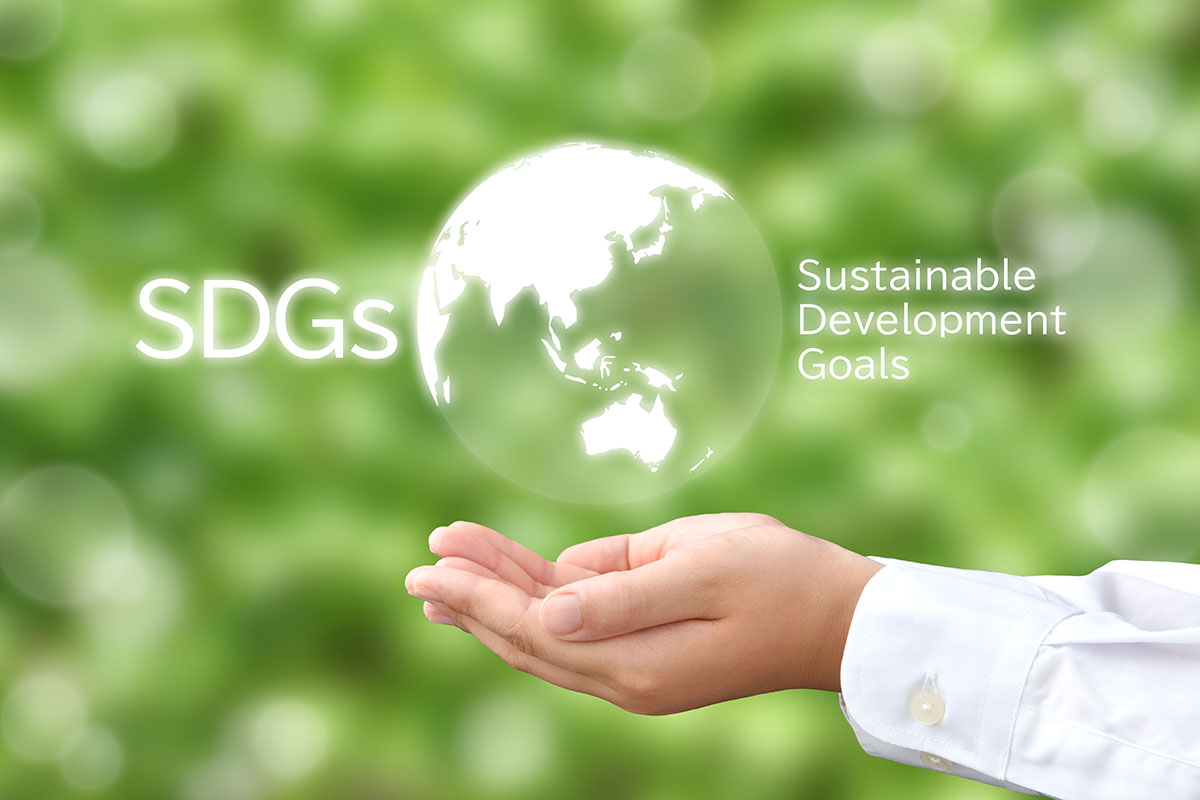Sustainability Acronyms You Need To Know | CGBC
With so many Sustainability Acronyms it can be hard to make sense of all the jargon. So, here’s an explainer of the different acronyms, what they...
4 min read
Caroline Geoghegan : Aug 10, 2023 11:21:00 AM

With the Aviation Industry in Ireland aiming to become Net Zero by 2050, Irish leasing companies along with carriers such as Ryanair are calling in the government to introduce a policy framework to be drawn up in support of the development of Sustainable Aviation Fuel or SAF as it is also known.
Paris 2015. 1.5 to stay alive. A framework is set out for international communities to lower emissions.
IPCC Report 2018. Emissions need to be halved by 2030 and reach net zero by 2050.
2021. 100+ countries are developing Net Zero policies.
2023. IPCC chair states that a 1.5 (warmer) world will be a more dangerous one, and that every action taken to mitigate risks and lower emissions would make a difference.
Along with recognition of the need to take mitigating steps to counter global warming, there has been a commercial shift towards Sustainability worldwide. Central to that shift is the belief by industry leaders that SAF could help achieve a 65% reduction in aviation emissions.

Sustainable Aviation Fuel is liquid aviation fuel developed synthetically or from renewable sources such as waste oils and green waste, for example. SAF is deemed sustainable because not only has it zero impact on crops, water or woodland/forests, it actually recycles CO2 thereby significantly reducing aviation carbon footprint.
Unlike Fossil Fuels which are typically refined, SAF is produced from materials with “biological” origins eg agri residue, and can help reduced GHGs by “up to 80%”. In support of a smooth transition from fossil fuels, SAF can be deployed without infrastructural change. What industry experts are saying is that a regulatory framework is required to help increase production and mitigate against any potential impact on arable agriculture.

Aviation experts believe that SAF can play a huge part in the industry’s drive to reach net zero by 2050. However, in order to keep these sustainable objectives on track, production will need to greatly accelerate to meet growing demand, leading experts across the globe to call on their respective governments to draw up policies and incentives to help drive SAF development.
Aviation leaders believe that these government led initiatives should help shape policy, forming part of a global strategy to increase sustainable fuel production and setting a worldwide benchmark for pricing, which they say, needs to be kept to a minimum to keep passenger costs down.
The IATA - International Air Transport Association - estimates that for the Aviation Industry to hit its Net Zero ’50 gates, “maximum elimination of emissions at source, offsetting and carbon capture tech” will be required, broken down as follows:
65% SAF
19% Offsets (which are becoming increasingly scarce)
13% New Tech
3% Other
To achieve their long-term climate goals, the Aviation industry is engaging with stakeholders to generate awareness and garner support to realise a “cost-competitive SAF market.”
In Ireland, the ALI - Aircraft Leasing Ireland - side by side with carriers including Ryanair, is exploring opportunities to develop SAF to decarbonise their sector.
For example, Ryanair is partnering with TCD to accelerate the production and usage of SAF, itself committing to fuelling c.12.5% of all flights with SAF by 2030. By focussing on the volumes of GHG emissions created during SAF production as well as the potential for zero carbon engines, this research-focussed initiative hopes to help shape environmentally and commercially sensitive policies and regulations.
In tandem with studies being carried out by ALI, it is hoped that the Ryanair/TCD research team’s findings will help spur the government into taking action to develop a framework for SAF production whilst simultaneously supporting the establishment of a “sustainability accreditation register”.

The benefits already identified of using SAF include:
The continued rise in usage coupled with ongoing reduction in costs is both enhancing performance and increasing efficiencies across the aviation industry, which can only mean good things for travellers, especially frequent fliers.
According to a spokesperson for the ALI, Ireland has a 50% share of the world’s global fleet of leased aircraft so it is essential that the Irish aviation sector plays its part in helping to meet this country’s net zero targets. By collaborating with each other, both the ALI and Irish government can, they say, “accelerate the development, manufacture, distribution and use of SAF.”
Ireland has all the key ingredients required for mass SAF production - renewable energy, agri/crop residues and suitably trained personnel - to become a global leader in the field. The ALI hopes that by presenting the findings of its extensive sector wide studies, it can persuade the Irish government to act sooner rather than later, to support this and other sustainable aviation initiatives along with, it is hoped, the creation of hundreds if not thousands of jobs in this field.
It used to be that Aer Lingus flew the Green flag for Ireland, but on the publication of its 2022 Sustainability Report, Ryanair laid claim to being the “greenest and cleanest airline” not just in Ireland, but Europe-wide.
Ryanair is ISO 14001, ISO 45001 and ISO 9001 certified. It is leveraging its ISO 14001 Environmental System Standard collateral to support and accelerate its transition to Net Zero by 2050 (in line with Irish government targets). By developing an ISO-driven ESG programme, Ryanair has designed and published a series of sustainable strategies and initiatives to “make a difference” both in the skies and on land, including decarbonising its supply chain and supporting government policy and reform.
The leading benchmark for Environmental management worldwide, ISO 14001 is at the heart of ground-breaking global initiatives to drive sustainability, reduce carbon emissions and meet ESG goals. It is without doubt, the principal pathway to a cleaner, greener and safer future, for Irish citizens, businesses and our precious environment.

With so many Sustainability Acronyms it can be hard to make sense of all the jargon. So, here’s an explainer of the different acronyms, what they...

It’s not just on operations that businesses need to set their sustainable sights. Sustainability in the workplace, like charity, begins at home. In a...
